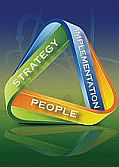Speaker
Rebecca STEVENS
(IAEA)
Description
At a time when the nuclear programmes of many States are expanding and the resources of the IAEA remain static, it is more important than ever to maximize the efficiency with which the Agency cooperates with Member States to ensure the effective implementation of safeguards. The Training Section of the Department of Safeguards is working to optimize training and outreach through coordinating with the efforts of other departments of the IAEA and Member States to reach as large an audience as possible within budget constraints.
This paper will describe some of the efforts undertaken in 2014 that highlight this collaboration strategy, which include: support to the Division of Nuclear Security in training on Nuclear Material Accounting and Control; partnering with the Department of Technical Cooperation and the Member State Support Programme of Finland to hold a training course for nuclear power newcomers on the regulatory aspects of safeguards, security, emergency response and safety; and support to the Department of Nuclear Energy in the Integrated Nuclear Infrastructure Review Missions (INIR) to assess the readiness of States’ nuclear infrastructure in those States that are implementing new nuclear power programmes. In all three of these venues, the presentation of safeguards obligations and good practice were emphasized, although none of these events was exclusively dedicated to safeguards training. In fact, given the broader attendance of these forums, safeguards objectives and their relation to the objectives of related programmes will reach a wider audience in a more expansive context than traditional training methods. It is to be expected that this model will continue, ensuring that training and guidance for safeguards will benefit from the synergies of related training efforts well into the future.
| Country or International Organization | IAEA |
|---|---|
| EPR Number (required for all IAEA-SG staff) | 660 |
Author
Rebecca STEVENS
(IAEA)
Co-authors
Andrea Braunegger-Guelich
(IAEA)
Jean-Maurice Crete
(IAEA)
Vladimir Cisar
(IAEA)

